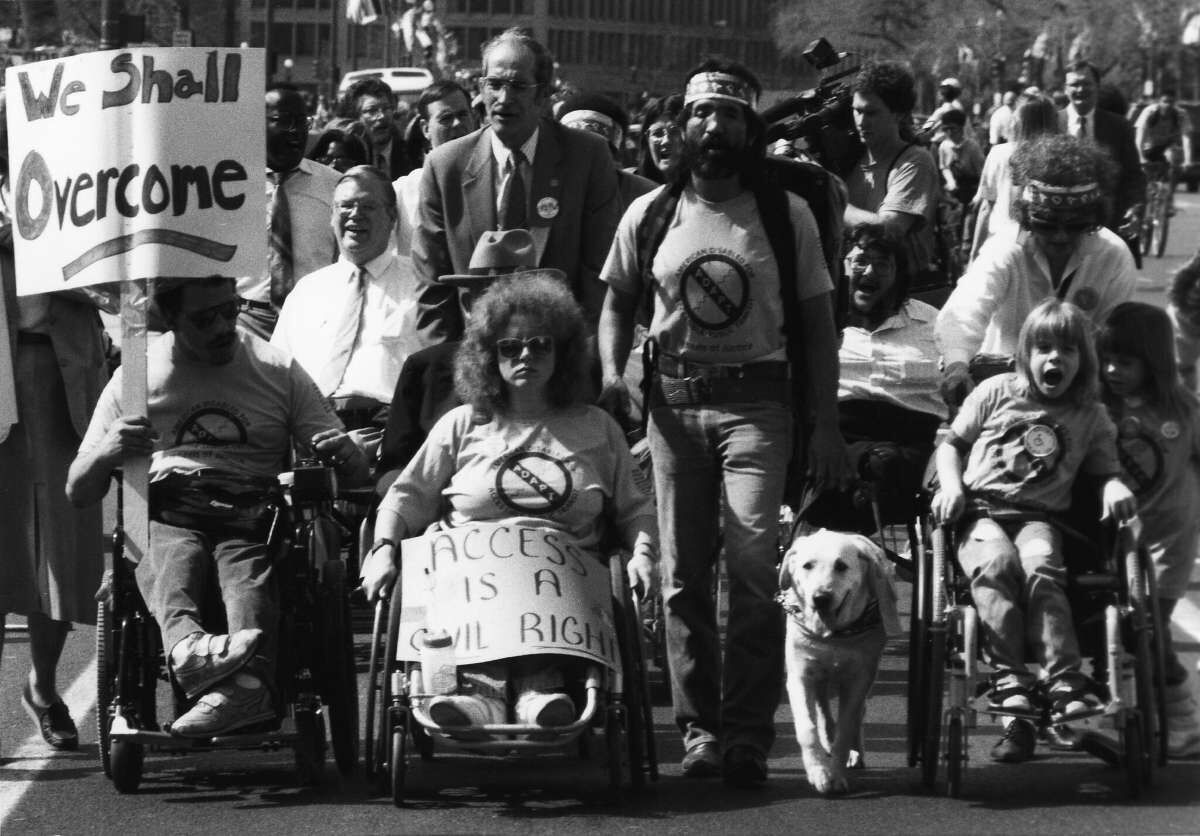1955-1965
Vocational Rehabilitation Act of 1954:
The Rehabilitation Act of 1954 was a landmark piece of federal legislation that demonstrated the United States' commitment to enhancing vocational rehabilitation services for individuals with disabilities. The Act sought to address the unique challenges faced by people with disabilities in accessing employment opportunities and fostering their independence. By providing federal support for rehabilitation programs, the legislation aimed to ensure that individuals with disabilities could lead more fulfilling lives and contribute meaningfully to society. This early initiative laid the foundation for subsequent advancements in disability rights, setting the stage for a more inclusive approach to vocational rehabilitation and employment for people with disabilities.
Social Security Disability Insurance (SSDI) - 1956:
In 1956, the United States took a significant step forward in supporting individuals with disabilities with the establishment of the Social Security Disability Insurance (SSDI) program. This federal initiative aimed to provide financial assistance to those unable to work due to disabilities, addressing economic challenges faced by this population.
California's Unruh Civil Rights Act - 1959:
Enacted in 1959, California's Unruh Civil Rights Act was a pioneering state-level legislation that played a crucial role in combating various forms of discrimination, including that based on disability. The Act aimed to eliminate arbitrary discrimination in all business establishments, making it illegal to deny individuals access to services or discriminate against them based on certain protected characteristics, including disability. While not exclusively focused on disability rights, the Unruh Civil Rights Act contributed significantly to California's commitment to fostering equal opportunities for all individuals. It set a precedent for anti-discrimination laws, creating a legal framework that would later influence the development of disability rights legislation at both state and federal levels.
Mental Retardation and Community Mental Health Centers Construction Act (CMHC) 1963:
The Mental Retardation and Community Mental Health Centers Construction Act, commonly known as the Community Mental Health Centers Act (CMHC), signed into law in 1963, holds significant importance in the evolution of mental health care in the United States. This legislation, part of the broader deinstitutionalization movement, aimed to transition from large mental health institutions to community-based care. By providing federal funding for the establishment of community mental health centers, the CMHC Act facilitated the decentralization of mental health services, making them more accessible and less stigmatized. Emphasizing prevention, early intervention, and comprehensive care, the act laid the groundwork for addressing mental health needs holistically. Furthermore, it supported research and professional training, contributing to advancements in mental health knowledge and the quality of care provided. Despite challenges in the implementation of deinstitutionalization, the CMHC Act's impact remains significant in shaping a more community-oriented approach to mental health care in the United States.
Developmental Disabilities Services and Facilities Construction Act (1963):
The Developmental Disabilities Services and Facilities Construction Act of 1963 aimed to address the needs of individuals with developmental disabilities. Also known as the Maternal and Child Health and Mental Retardation Planning Amendment, this legislation allocated federal funds for the construction of facilities and services dedicated to supporting individuals with developmental disabilities. The Act represented an early federal effort to enhance the infrastructure for providing specialized care for those with developmental challenges.
